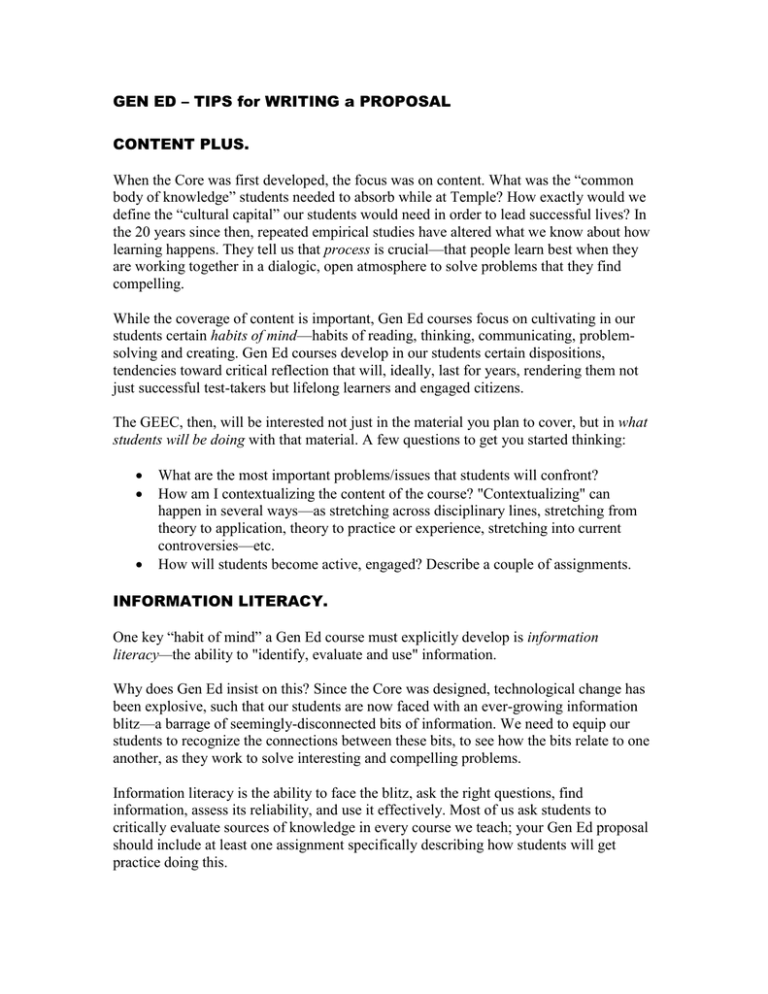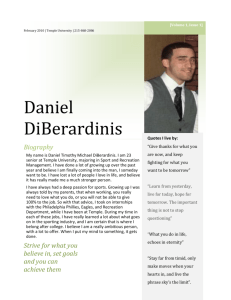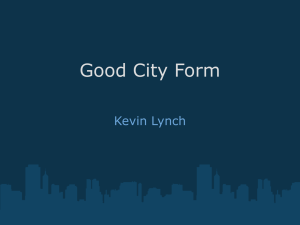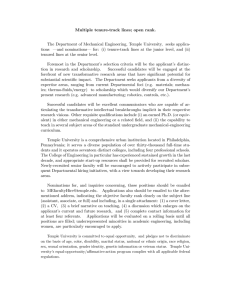TIP SHEET FOR WRITING A PROPOSAL
advertisement

GEN ED – TIPS for WRITING a PROPOSAL CONTENT PLUS. When the Core was first developed, the focus was on content. What was the “common body of knowledge” students needed to absorb while at Temple? How exactly would we define the “cultural capital” our students would need in order to lead successful lives? In the 20 years since then, repeated empirical studies have altered what we know about how learning happens. They tell us that process is crucial—that people learn best when they are working together in a dialogic, open atmosphere to solve problems that they find compelling. While the coverage of content is important, Gen Ed courses focus on cultivating in our students certain habits of mind—habits of reading, thinking, communicating, problemsolving and creating. Gen Ed courses develop in our students certain dispositions, tendencies toward critical reflection that will, ideally, last for years, rendering them not just successful test-takers but lifelong learners and engaged citizens. The GEEC, then, will be interested not just in the material you plan to cover, but in what students will be doing with that material. A few questions to get you started thinking: What are the most important problems/issues that students will confront? How am I contextualizing the content of the course? "Contextualizing" can happen in several ways—as stretching across disciplinary lines, stretching from theory to application, theory to practice or experience, stretching into current controversies—etc. How will students become active, engaged? Describe a couple of assignments. INFORMATION LITERACY. One key “habit of mind” a Gen Ed course must explicitly develop is information literacy—the ability to "identify, evaluate and use" information. Why does Gen Ed insist on this? Since the Core was designed, technological change has been explosive, such that our students are now faced with an ever-growing information blitz—a barrage of seemingly-disconnected bits of information. We need to equip our students to recognize the connections between these bits, to see how the bits relate to one another, as they work to solve interesting and compelling problems. Information literacy is the ability to face the blitz, ask the right questions, find information, assess its reliability, and use it effectively. Most of us ask students to critically evaluate sources of knowledge in every course we teach; your Gen Ed proposal should include at least one assignment specifically describing how students will get practice doing this. HELP in DEVELOPING a PROPOSAL—Make an appointment w/: Gen Ed Area Coordinators: Race/Diversity & World Society Dan Tompkins pericles@temple.edu Science Susan Jansen Varnum suebee@temple.edu Quantitative Literacy & Technology Tony Hughes Hughes@temple.edu U.S. Society Ralph Taylor Ralph.Taylot@temple.edu Human Behavior Terry Halbert thalbert@temple.edu Arts Ed Flanagan flanagan@temple.edu OR Pamela Barnett Director, Teaching & Learning Center pbarnett@temple.edu Terry Halbert Director, Gen Ed thalbert@temple.edu INFORMATION LITERACY – To get in touch with a librarian specialist, contact: Jenifer Baldwin Head of Reference & Instructional Services jbaldwin@temple.edu



